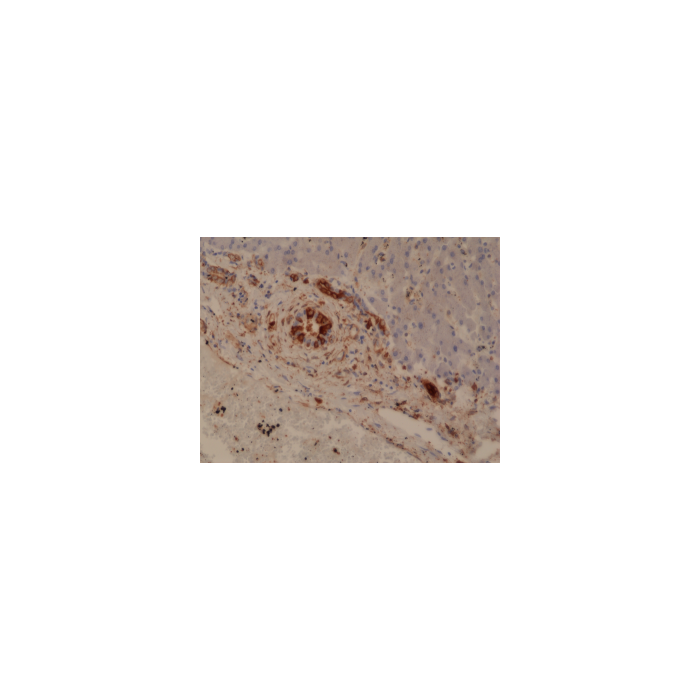Cookie Policy: This site uses cookies to improve your experience. You can find out more about our use of cookies in our Privacy Policy. By continuing to browse this site you agree to our use of cookies.
RevMab
anti-GST3/GST pi (human), Rabbit Monoclonal (RM347)

| Product Details | |
|---|---|
| Synonyms | Glutathione S-transferase P; GST pi; GSTP1-1 |
| Product Type | Recombinant Antibody |
| Properties | |
| Clone | RM347 |
| Isotype | Rabbit IgG |
| Source/Host | Rabbit |
| Immunogen/Antigen | A peptide corresponding to the C-terminus of human GST3/GST-pi. |
| Application |
Immunohistochemistry (IHC): 1:1000-1:20000 dilution |
| Crossreactivity | Human |
| Specificity |
This antibody reacts to human GST3/GST-pi (Glutathione S-transferase P). |
| Purity | Protein A purified. |
| Purity Detail | Protein A affinity purified from an animal origin-free culture supernatant. |
| Concentration | N/A |
| Formulation | Liquid. 50% Glycerol/PBS with 1% BSA and 0.09% sodium azide. |
| Isotype Negative Control | |
| Other Product Data |
Click here for Original Manufacturer Product Datasheet |
| Accession Number | P09211 |
| Declaration | Manufactured by RevMab Biosciences. |
| Shipping and Handling | |
| Shipping | BLUE ICE |
| Long Term Storage | -20°C |
| Handling Advice | Avoid freeze/thaw cycles. |
| Use/Stability | Stable for at least 1 year after receipt when stored at -20°C. |
| Documents | |
| Product Specification Sheet | |
| Datasheet |
 Download PDF Download PDF |
Inhibition of free radicals and the damage they produce is critical for cell survival, particularly in neurons. Glutathione S-transferases (GSTs) are a class of inducible, multifunctional, detoxifying enzymes that catalyze the reduction of hydrophobic electrophiles, like those generated by pesticides and chemotherapeutic compounds. In mammals, six different isoforms alpha, mu, pi, theta, omega, and zeta have been identified. GST-Pi is expressed in many human tissues, particularly in the biliary tree, renal distal convoluted tubules and lungs. GST-Pi overexpression has been observed in many tumors compared with the surrounding normal tissues and in various cancer cell lines resistant to anticancer agents. It has been shown that GST-Pi acts as a regulator of mitogen-activated protein (MAP) kinases. GST-Pi is an endogenous inhibitor of c-Jun NH2-terminal kinase (JNK), mediated by interactions with the NH2-terminal region of the kinase. After oxidative stress, GST-Pi oligomerizes and disassociates from JNK, which then becomes phosphorylated. GST-Pi can also modulate the activation of p38 and extracellular signal-regulated kinase (ERK).





